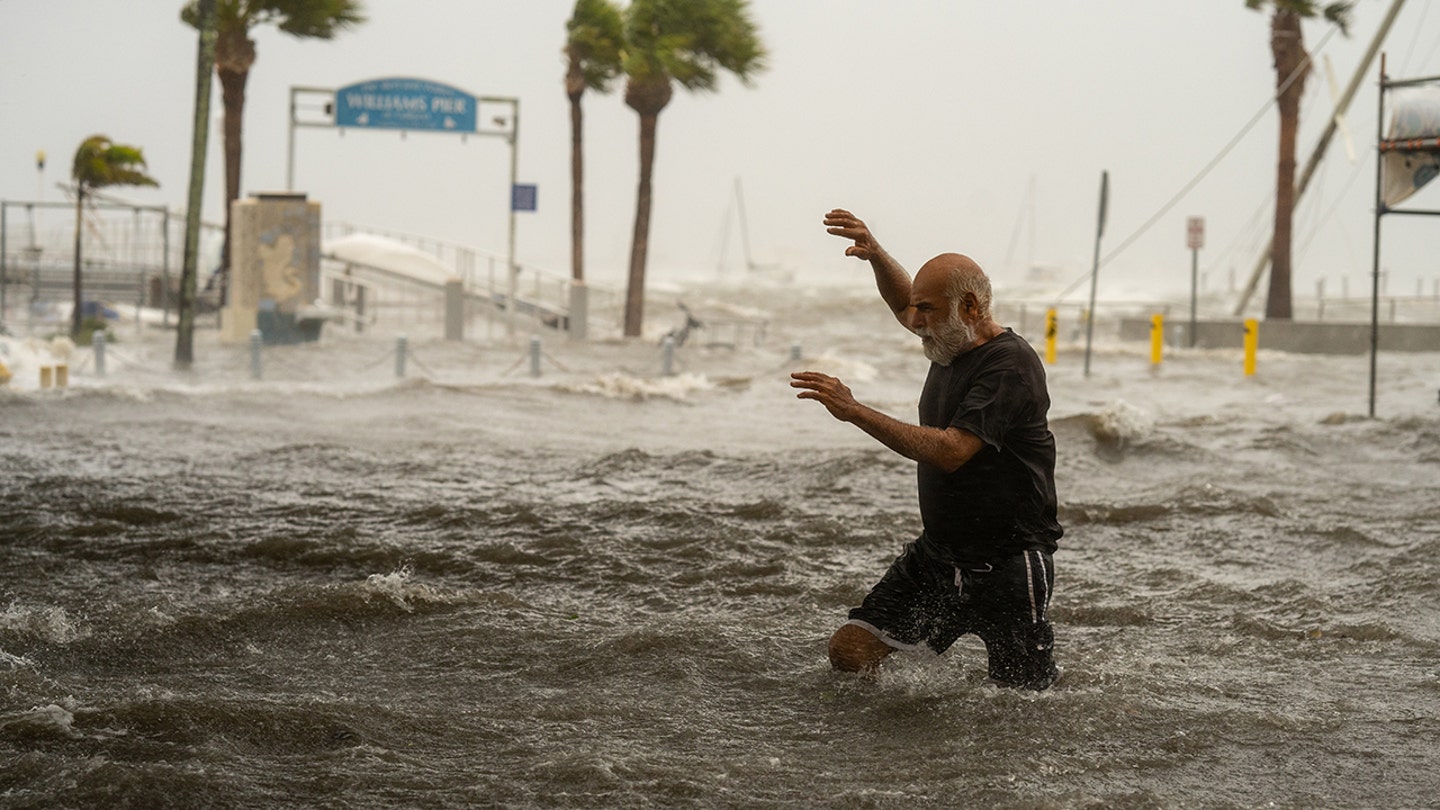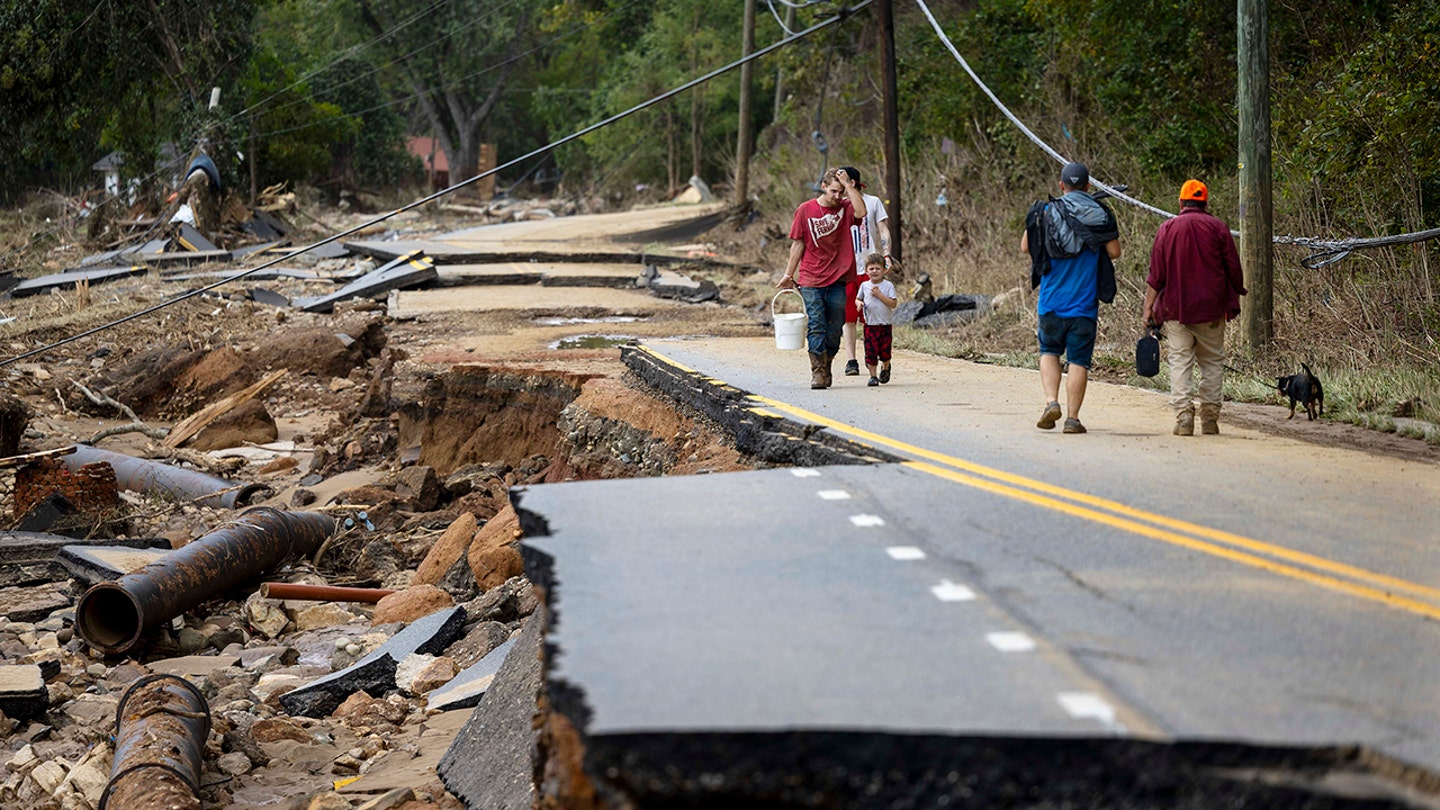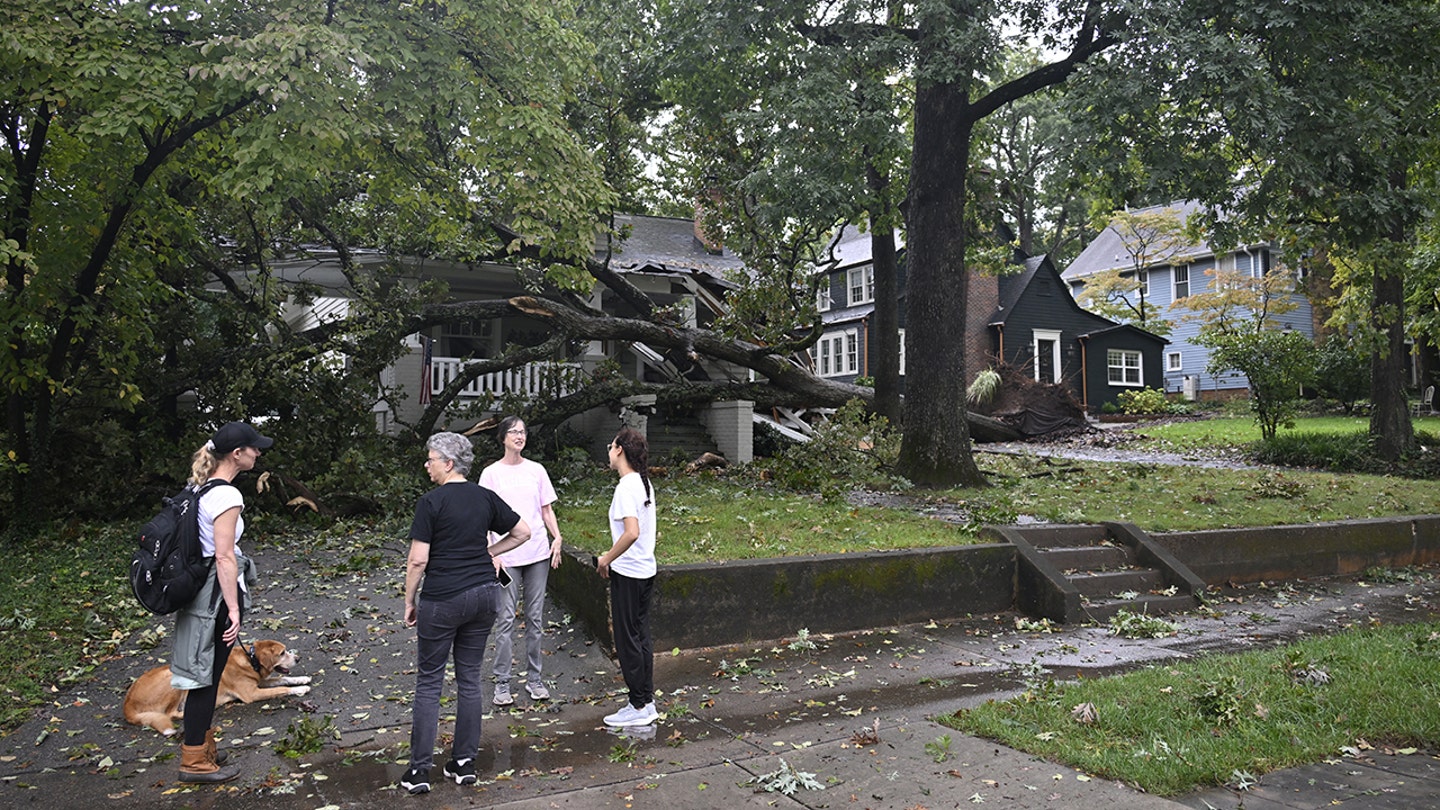As another hurricane threatens the U.S., the aftermath of Hurricane Helene still poses major threats.
Americans in areas of the country that were devastated by the storm may face numerous health risks.
Fox News senior medical analyst Dr. Marc Siegel joined “Fox Report Weekend” to discuss the severity of the damage, including people being injured and displaced from their homes, as well as 350,000 residents in North Carolina and Georgia who are still without power.
HURRICANE HELENE FLOODING: MOLD IN YOUR HOME COULD CAUSE SEVERE HEALTH RISKS, EXPERTS SAY
“People are displaced, people are in shelters, pets are in shelters, roads are damaged, the infrastructure’s going to take months or years to fix,” he said.
“And that means post-traumatic stress disorder for people. That means anxiety.”
Workers, community members and business owners clean up debris in the aftermath of Hurricane Helene in Marshall, North Carolina, on Sept. 30, 2024. (Jabin Botsford/The Washington Post via Getty Images)
In addition to mental health concerns, Siegel emphasized that public health has become an issue following the storm, noting the shortage of clean water.
The Federal Emergency Management Agency (FEMA) has brought 7.5 million liters of water to affected areas, but it’s “not nearly enough,” according to the doctor.
“We don’t have enough health care workers in this country for emergencies like this.”
“Many people are without water,” Siegel said. “Many people have water that they’re worried could be contaminated.”
While dehydration is a threat, Siegel cautioned that drinking contaminated water can lead to dysentery and diarrheal diseases.
HURRICANE HELENE FLOODING IN NC STIRS YELLOW JACKET SWARMS, PROMPTING DISTRIBUTION OF BENADRYL AND EPIPENS
“People [ingest] bacteria, they get sick, then they get dehydrated, then they don’t have water,” he said.
According to Aquasana, a maker of water filtration systems, boiling contaminated water can help kill off harmful bacteria and solids, but won’t remove other substances like chlorine or lead.
Even so, Siegel mentioned that some Americans might not have the ability to boil their water.

A man crosses a storm surge-flooded area on the coast of Gulfport, Florida, as Hurricane Helene passed through the Gulf of Mexico to the West on Sept. 26, 2024. (Thomas Simonetti for The Washington Post via Getty Images)
“There’s a tremendous amount of health risks going on right now,” he said.
“The hospitals are overwhelmed in these areas, and we’re talking in Appalachia, very rural areas, where there isn’t a lot of medical care to begin with.”
CLICK HERE TO SIGN UP FOR OUR HEALTH NEWSLETTER
Lack of medication and proper medical care is another risk, as well as people being displaced from their homes, Siegel added.
“That causes a lot of trauma and stress psychologically,” he said.

Swannanoa residents walk through devastating flood damage from the Swannanoa River in western North Carolina on Sept. 29, 2024. (Travis Long/The News & Observer/Tribune News Service via Getty Images)
“People who are roaming around that are fearful, that are anxious, get hurt. We’ve seen a lot of injuries and there are more to come.”
“Community spirit and community involvement and helping your neighbor is really the way to go,” he went on. “But not if you’re fully isolated.”
For more Health articles, visit foxnews.com/health
For families or loved ones looking to help those who have been affected by the hurricane, Siegel encouraged them to send clean water, medications, antibiotics and first aid.
“Don’t venture out into areas that are unsafe,” he advised. “If you have a cell phone working, you certainly want to be in touch with your neighbors, with your loved ones, as much as possible.”

Hurricane Helene caused power outages, school closings and downed trees in Charlotte, North Carolina, on Sept. 27. (Peter Zay/Anadolu via Getty Images)
Siegel emphasized the importance of having enough medical providers available across the country to handle emergencies as Hurricane Milton intensifies.
CLICK HERE TO GET THE FOX NEWS APP
“We have to take care of our health care workers because we’re getting a ton of burnout,” he said.
“We don’t have enough health care workers in this country for emergencies like this.”
